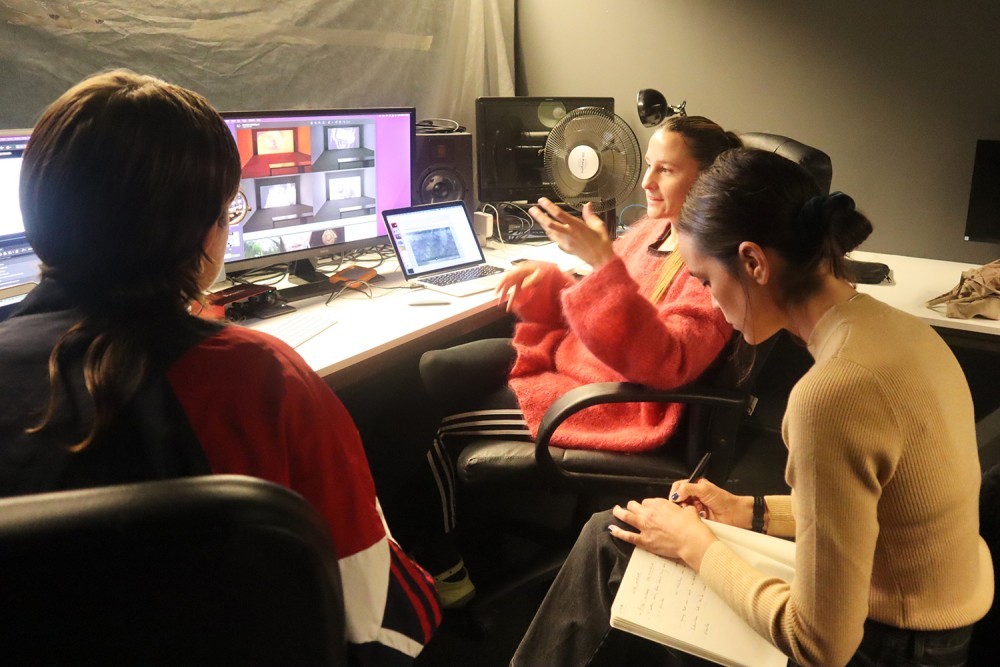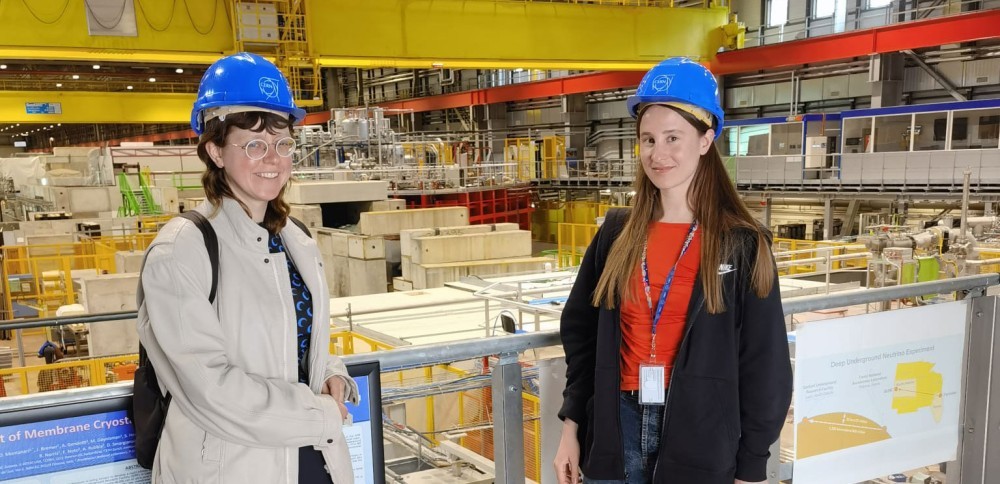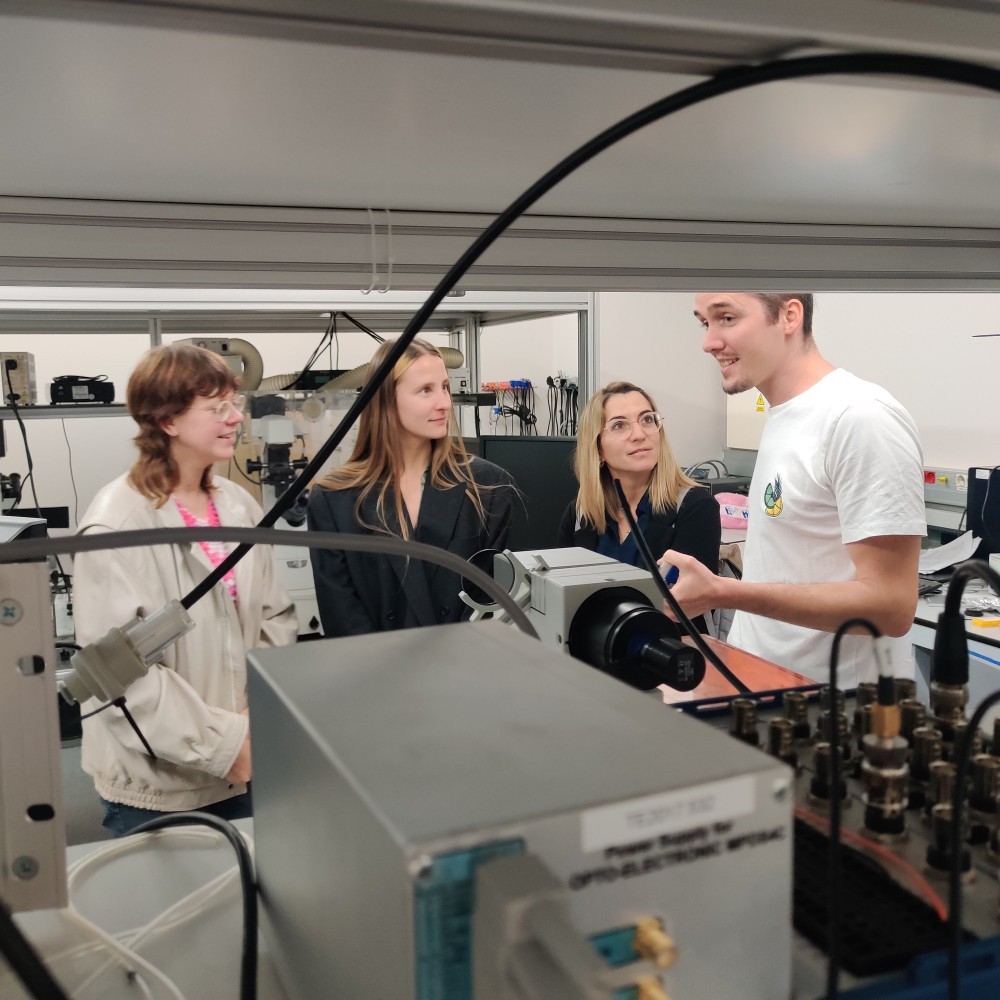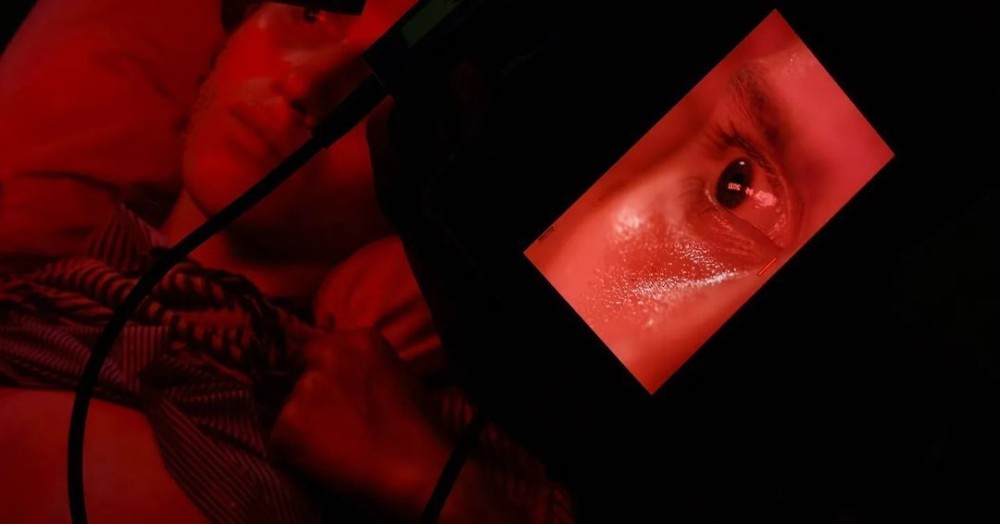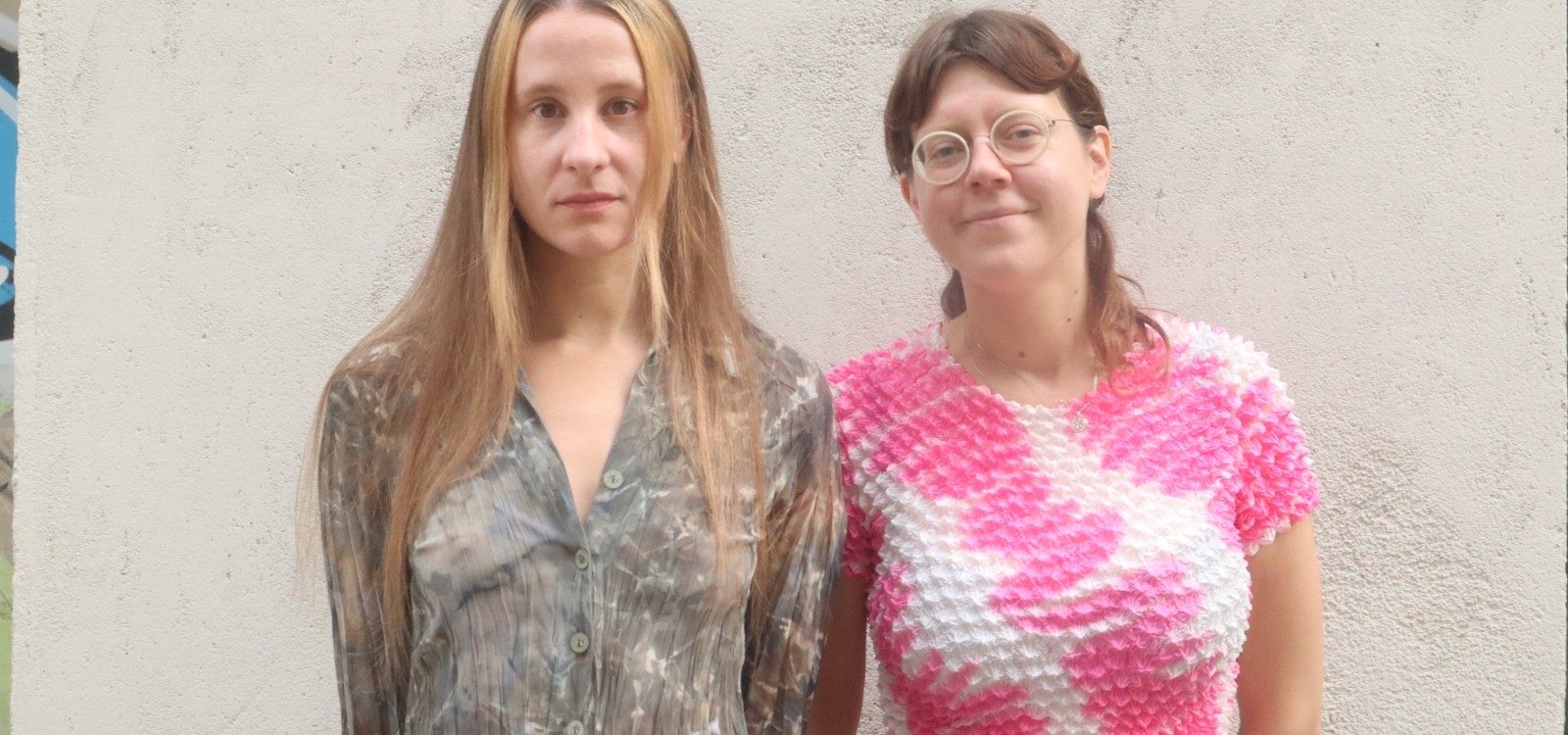
Dorota Gawęda & Eglė Kulbokaitė start their Collide residency in Barcelona
The 2021 Collide-winning artists are in residence at Hangar to continue their artistic research in dialogue with the city’s scientific laboratories and start their art production
Working together since 2013, Dorota Gawęda and Eglė Kulbokaitė’s multi-faceted practice navigates between performance, fragrance, installation, sculpture, video and painting, all of which are rooted in feminist theory and fiction. Drawing on Eastern European rituals and engaging with concepts of fundamental physics, their residency project Gusła investigates the blurring boundaries and looks into the unknowns, calling forth speculative worlds without separation of past, present and future, the human and non-human, the technological and natural forces, the living and the (un)dead.
‘Spirits of vernacular belief demonstrate that the past is not actually past at all and that the drowned, burned and buried—they have always lived— in cyclical time and the landscape. Interstitial bodies, souls and spirits occupy liminal, contaminated, edge-of-world zones: swamps, soils and spills,’ said the artists. They are interested in those in-between spaces and states, drawn to the moment when the laws of classical physics collapse on the edge of the quantum world. ‘Weirdness as a way of thinking, manifested in fables and observable within the interactions of fundamental physics, provides us with an ecological worldview in which human and nature, human and non-human, are thoroughly imbricated, always unstable on the verge of becoming other.’
Last May, Gawęda and Kulbokaitėwe completed their first month in residence at CERN. Throughout conversations with theoretical and experimental physicists and visits to experimental sites such as the Large Hadron Collider detectors CMS and ATLAS, CLOUD and n_TOF, they discussed ‘the fundamental curiosity that drives scientific research and parallels that of artistic creation.’
This month, the artist duo are in Barcelona, connecting and engaging in dialogue with scientists from the city while being in residence at the Hangar Centre for Art Research and Production. The Basel-based artist duo explored the Institute of Photonic Sciences (ICFO), whose research encompasses diverse areas where photonics plays a decisive role. They met scientists Stefan Forstner and Lukas Lau to learn about the limits between classical and quantum systems as well as the visualisation of single molecules. At Hangar, they will start the production of their work, which ‘will focus on soil, a barrier to the underground experiment site and an underworld’.
On 23 November at 7pm, the artists will present their work at Hangar’s Paratext, their monthly program of performances by artists in residence. The artists present, in different formats, specific projects or parts of their work. The sessions are always open to the public, enabling interaction between local audiences and artists.
The collaboration framework between CERN, Barcelona’s Institute of Culture and Barcelona City Council as part of Arts at CERN’s Collide Residency Award comes to an end. On 25 November, we will celebrate the three-years of fruitful partnership with the presentation of the publication ‘Art-science collisions. Notes from a choral dialogue in Barcelona’, which results from conversations between artists, scientists, curators, and science communicators in Barcelona. From exploration and research to collaboration and production, the publication reflects on the challenges and opportunities of art and science practices. It collects the discussions of heterogeneous working groups around the necessity for these confluences to address current global challenges, the critical problems of working and production processes, and the specific needs to create more sustainable, participatory and inclusive practices.
The participants include experts from CERN, Barcelona Ciencia, Hangar, CCCB, BAU Design College of Barcelona, the Catalan Institute of Nanoscience and Nanotechnology (ICN2); Fabra i Coats: Fàbrica de Creació; the Institute of Cosmos Sciences (ICCUB); the Institute for High Energy Physics of Barcelona (IFAE); the Institute of Photonic Sciences (ICFO); Sonar Festival; the Institute for Research in Biomedicine; the Open University of Catalonia; Loop Festival; La Pedrera Foundation; Quoartis and the Technical University of Catalonia (UPC).
As part of this celebratory event, Dorota Gawęda & Eglė Kulbokaitė will be presenting their practice and briefly introducing their research as part of their Collide residency.
‘The reader is invited to participate in a performance of spacetime (re)configurings that are more akin to how electrons experience the world than any journey narrated through rhetorical forms that presume actors move along trajectories across a stage of spacetime (often called history). The electron is here invoked as our host, an interesting body to inhabit (not in order to inspire contemplation of flat-footed analogies between ‘macro’ and ‘micro’ worlds, concepts that already presume a given spatial scale), but a way of thinking with and through dis/continuity – a dis/orienting experience of the dis/jointedness of time and space, entanglements of here and there, now and then, that is, a ghostly sense of dis/continuity, a quantum dis/continuity. There is no overarching sense of temporality, of continuity, in place. Each scene diffracts various temporalities within and across the field of spacetimemattering. Scenes never rest, but are reconfigured within, dispersed across, and threaded through one another.’1
After three years of successful collaboration with the city of Barcelona, the Collide Award will announce its new partnership for the period 2022-2025.
1. Karen Barad, Quantum Entanglements and Hauntological Relations of Inheritance: Dis/continuities, SpaceTime Enfoldings, and Justice-to-Come.
